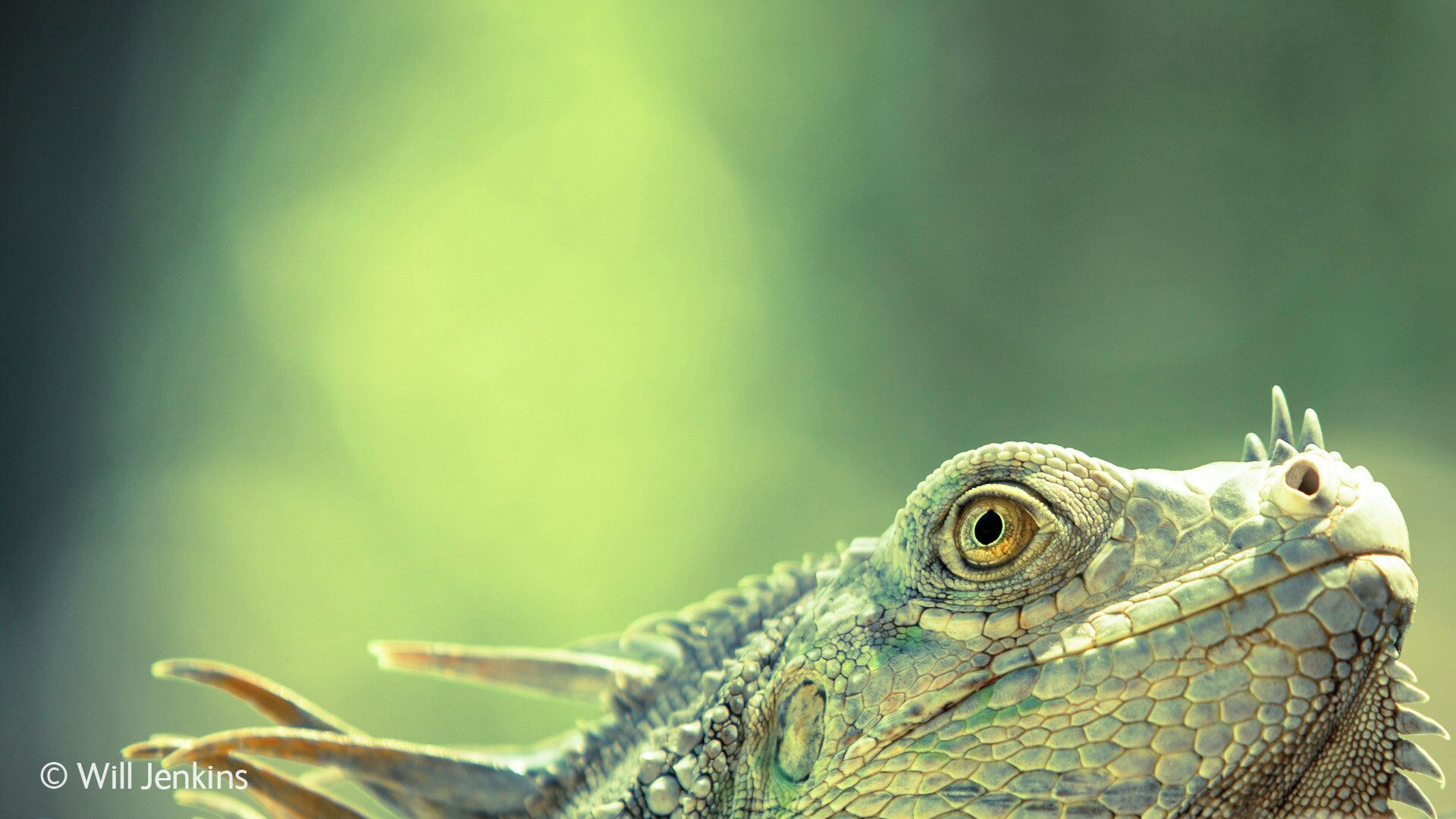Hunting Iguanas in Florida Backyards Become New Tourist Attraction to Contain Invasive Reptile
Subscribe
If you're the kind of person who dreams of pointing an air rifle at a large iguana and pulling the trigger, here is your chance. The invasive species has been ravaging Florida gardens to eat flowers, vegetables, and fruit trees. The pesky creatures have even been reported to tear out wiring, causing loss of internet, as well as power outages.
Green iguanas are taking over South Florida in large numbers, crawling over residents’ seawalls, fences, and leaving feces in their pools, backyards, porches and driveways. Close to 9,000 have been reported in South Florida, but since they’re difficult to track, that number is thought to be much higher.
The species, native to Central and South America as well as the Caribbean, can reach sexual maturity at 18 months and lay an average of 40 eggs a year.
Hunting Iguanas LLC will assist people in hunting an exotic prize, with one couple in Florida paying $500 for four hours of guided iguana shooting in Broward County.
“We have people come from all over the United States, all over,” said Gene Parker, company owner. “And their comment is, this is a sport and a hunt we never even dreamed of. I’ve got guys that’s hunted every animal in North America.”
If not used correctly, air rifles won’t immediately kill an iguana, and inexperienced shooters often subject the creatures to a cruel and lingering death, a scenario that could lead to the hunter being brought up on charges of animal cruelty.
“These air-rifle hunts inflict stunning levels of cruelty on iguanas,” said Barbara J. King, an author and anthropology professor at William and Mary University.
The practice of killing iguanas with an air rifle "should offend any person, including any hunter, who cares about animals. It’s because of us humans, through the pet trade, that these iguanas now roam through Florida and it’s up to us to find non-cruel, better yet non-lethal, ways to solve the problem,” she said.
Hunting green iguanas, like all nonnative species, is legal, as long as it is done humanely. Since the species has been reported by some as being a 'nightmare', many are glad enough to be rid of them, even if that means killing them. One Florida resident reported finding an iguana in her toilet.
Trapper Mike Kimmel, nicknamed “The Python Cowboy”, who removes both invasive Burmese pythons and green iguanas from homes, says he gets many calls from concerned homeowners and HOA communities.
“Their home is under attack, they feel. They have these huge lizards that can be aggressive hanging all around their backyard and their front yard, sometimes on their porch and patio,” says Kimmel. “They leave droppings everywhere and their feces contain salmonella so it’s a health issue.”
“They compete with our native wildlife and vegetation. More now than ever it’s a really big problem.” Kimmel added, saying that the state hasn’t experienced a ‘cold snap’ in years, which causes iguanas to fall from trees as the cold essentially paralyzes them, making it much easier to remove them and euthanize them.
Once Kimmel traps and kills his iguanas, he says the skin can be used like any other leather for wallets and other products. The best meat of the iguana, he claims, is in the larger males’ cheeks. But some of the smaller ones he captures alive.
“Anything I live capture, and I’m legally able to, I always try to rehome it or turn it into a pet, or use it for education, whatever I can, euthanization is always the last option,” he said, holding an iguana he had just captured. “When they reach a certain size, when they’re adults, they won’t eat in captivity, they’ll starve themselves to death,” he said, adding that at that point euthanization becomes the only option for the species.
Thomas Portuallo, owner of Fort Lauderdale’s Iguana Control, declared his belief that there are “hundreds of thousands” of the creatures roaming the state. He says his company humanely exterminates green iguanas, using precharged pneumatic pistols which deliver a single shot to a lizard head.
“We don’t shoot to injure, we shoot with intent to kill,” Portuallo says. “My men are well-trained. We follow all laws in every municipality we work.”
Homeowners who don’t want blood on their hands or an animal cruelty lawsuits can control the backyard beasts by looking for their burrows, usually found by seawalls, and collapsing those holes. Portuallo adds that green iguanas love to eat hibiscus and bougainvillea, so removing those from one’s yard and adding crotons, ixora, or oleander, which they don’t care for, might let the pesky creatures know that they aren’t welcome.

